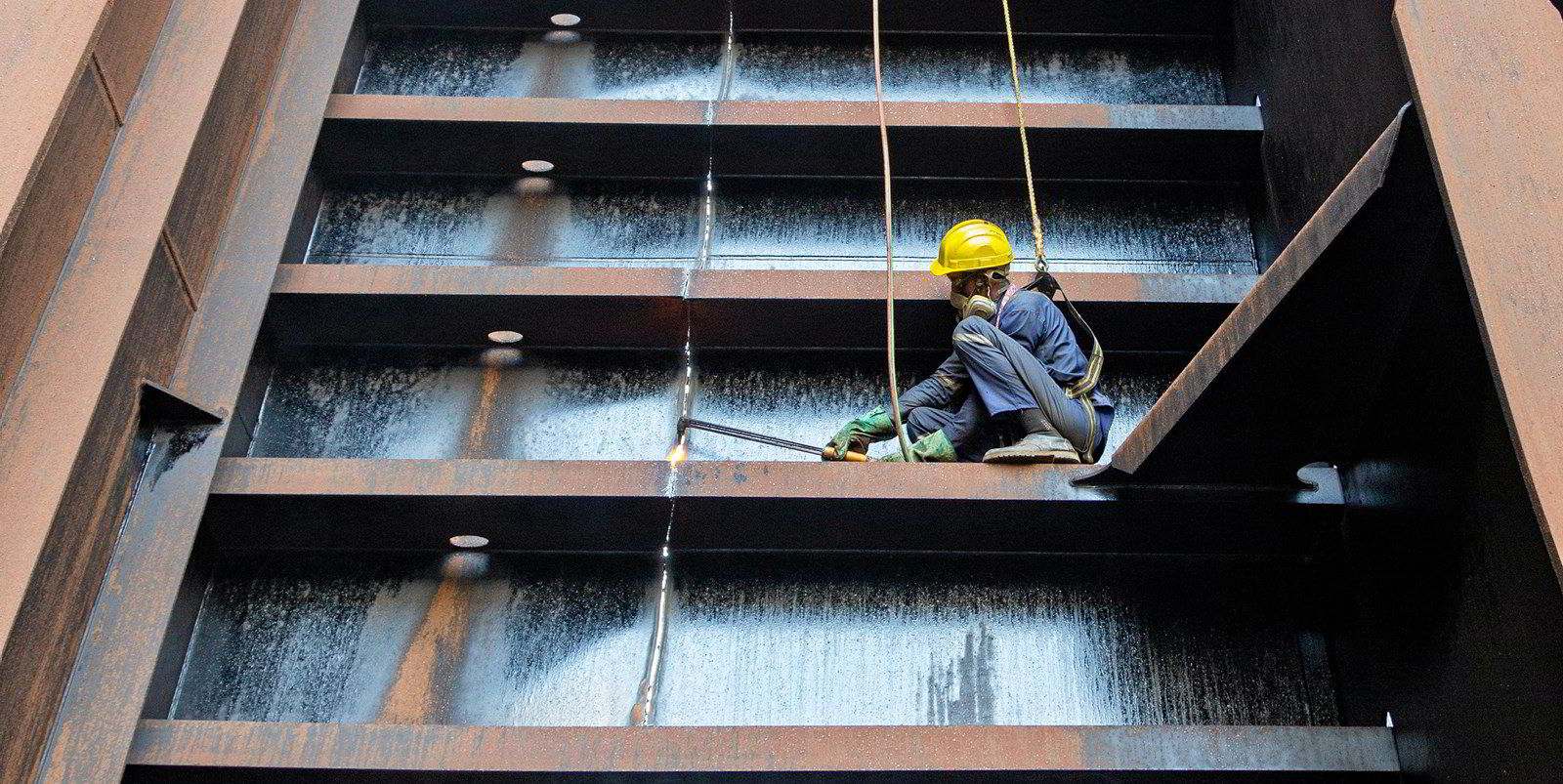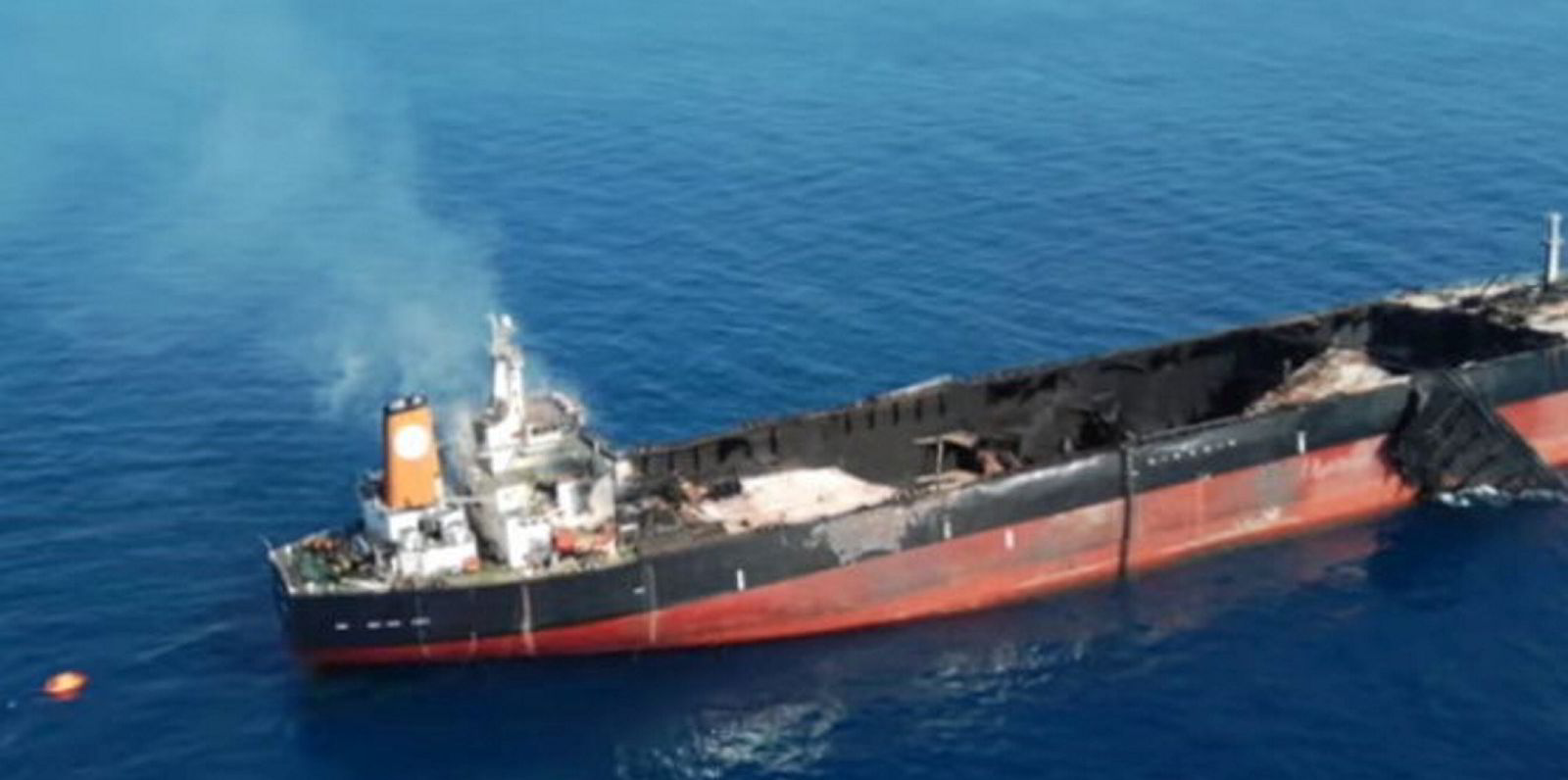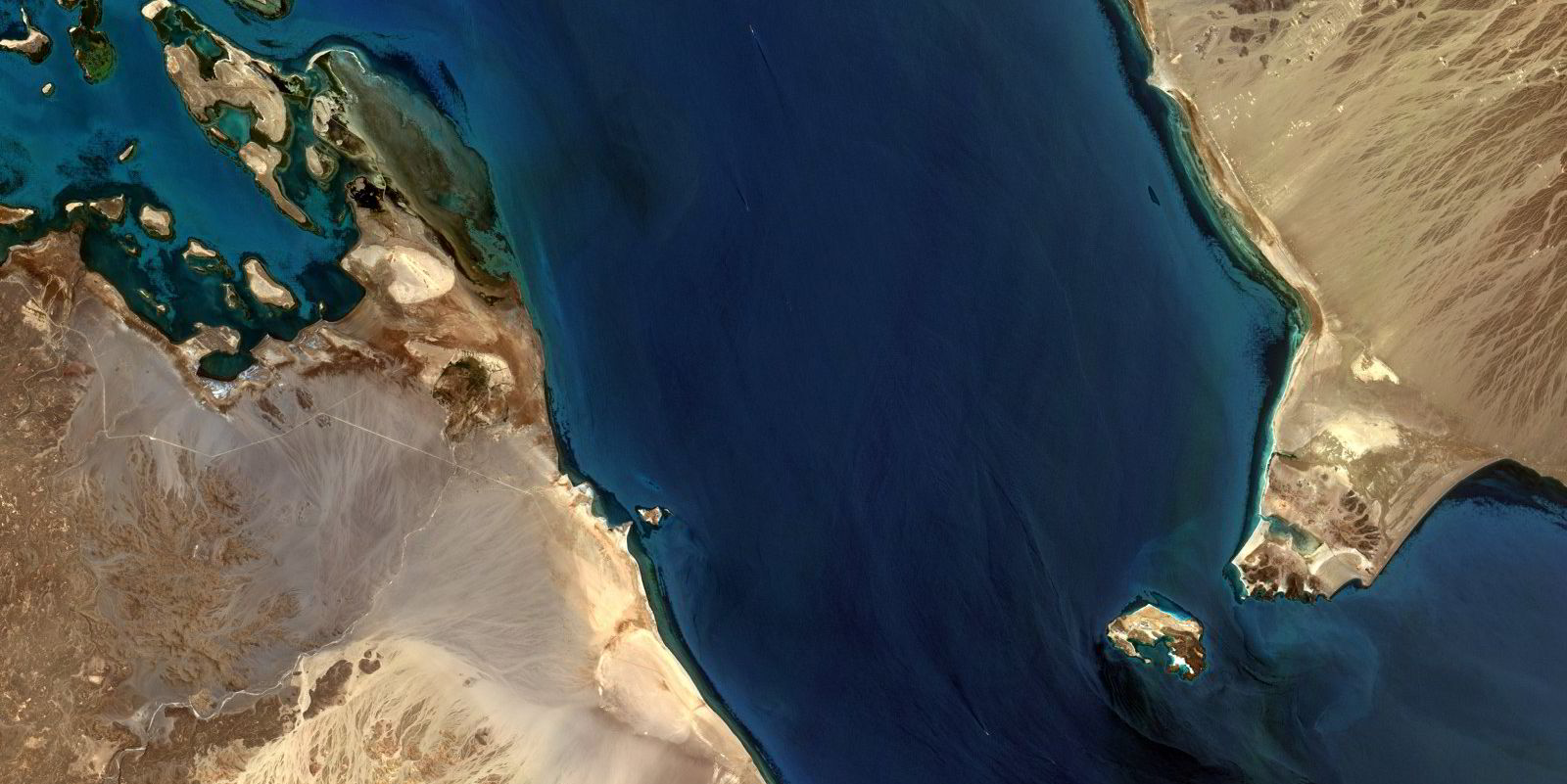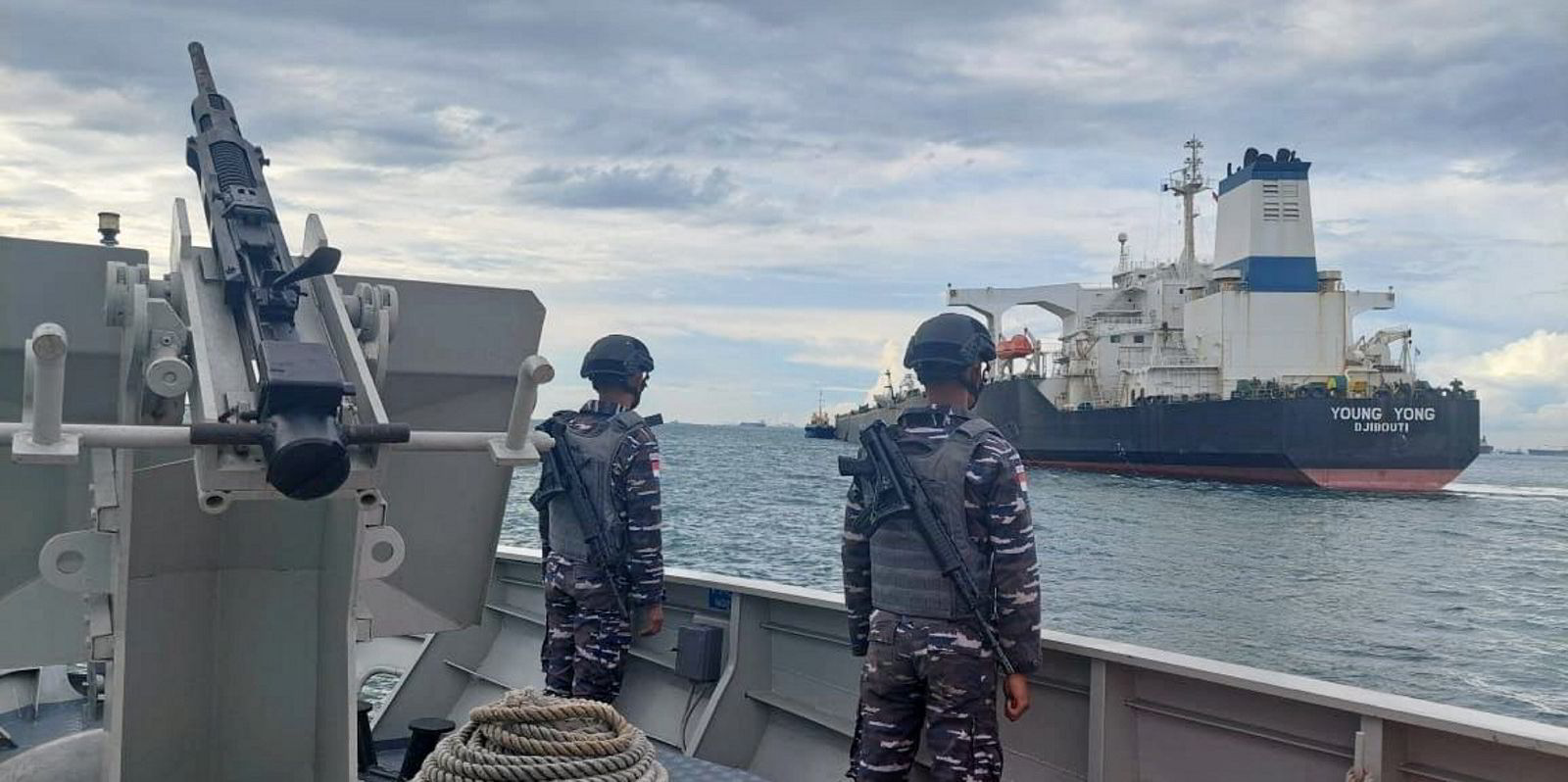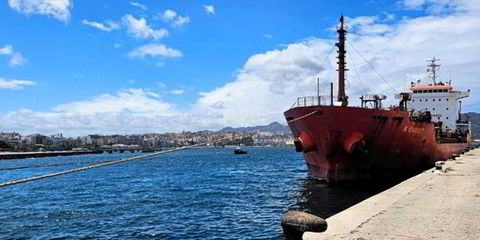An alleged Iranian spy ship and a VLCC owned by a sanctioned Ukrainian tycoon are both understood to be destined for the breakers’ beaches.
The general cargo ship Saviz (built 1999), which Iran claimed was being used for anti-piracy operations in the Red Sea, has been sold for recycling, according to cash buyers.
The Saviz was accused by other nations of being a spy ship. It was damaged by limpet mines in an April 2021 attack, allegedly conducted by Israel in retaliation for attacks on Israeli shipping.
The recycling sector was also abuzz with talk this week of the scrap sale of another sanctioned vessel, the VLCC Adisa (built 2005), a vessel owned by one of the companies controlled by Ukrainian businessman Viktor Artemov.
Their sales highlight the Catch-22 situation that the shipping industry and international authorities face with the so-called shadow fleet that transports sanctioned crude oil and petroleum products.
Leaders in the tanker industry have become increasingly vocal about this shadow fleet, highlighting the risk posed by ageing, lightly regulated tankers trading in the world’s oceans.
Several incidents in recent months have shown the problems of dealing with safety incidents involving these ships that are often uninsured and whose owners are frequently untraceable.
The legitimate players in the industry want these ships gone.
Some hungry ship recyclers on the Indian subcontinent appear happy to help by cutting them up for scrap. But, US sanctions against the individual ships and their owners and managers make them a tough sell, even in the demolition market.
The big cash buyers, the ones who protect their reputations because they would have too much to lose if caught being involved with sanctioned or questionable ships, will not touch them. They say the deals are being done by small one-man-band shops that fly under the radar.
If based outside of the US, they are not violating any laws, but if found out, they risk being cut out of the US banking system, which would make it hard for them to conduct any transactions in US dollars.
However, observers say these small companies are happy to trade in dirhams, euros or any other tradeable currency, as are the sellers.
The off-market nature of the deals being concluded for these ships makes it difficult to determine who the intermediary cash buyer is, or how much the ship has been transacted for.
In the case of the 23,200-dwt Saviz, TradeWinds was unable to locate where the ship had been since it was attacked.
The Saviz was once just a regular commercial vessel with the Islamic Republic of Iran Shipping Lines and then Tehran-based Rahbaran Omid Darya Ship Management until commandeered by the Iranian military for its Red Sea role.
A fact sheet for the vessel circulated to cash buyers that was seen by TradeWinds listed its current owner as Oghyanous Khorooshan Kish Shipping and noted the ship would have to be towed to a recycling yard as its engine room was flooded.
The Saviz was placed back under US sanctions by Donald Trump’s administration following the JCPOA withdrawal in 2018.
The 310,000-dwt Adisa (built 2005) is another tanker sanctioned by the US government, albeit in November 2022 after it became the sole ship of Marshall Islands-registered Triton Navigation Corp, whose address was listed as being care of its former owner Thomarose Global Ventures of Nigeria.
The US Office of Foreign Assets Control linked Triton to a vast oil shipping network controlled by Artemov, Edman Nafrieh, Rouzbeh Zahedi and Mohamed El Zein, who allegedly used dozens of front companies under their control to transport oil for Iran’s Islamic Revolutionary Guard Corps’ Quds Force.
Artemov, accused of being the main organiser of the alleged scheme, was sanctioned along with his ships that US authorities said engaged in ship-to-ship transfers to facilitate the blending of Iranian oil with Indian oil to obscure the origin.
Recycling sources said the Adisa was sold on an “as is” basis for an undisclosed price. Vessel tracking data indicated the ship was anchored off the coast of the United Arab Emirates this week.
TradeWinds has in recent months reported the scrap sales of several other tankers either sanctioned or alleged to be part of the shadow fleet, and recycling sources claim the number is growing as the ships become too old to trade or their owners and managers are sanctioned.
The cash buyers and ship recyclers who bought them so far do not appear to have come under scrutiny from US authorities, which some observers believe may be deliberate on the part of the US.
BRS Shipbrokers has assessed that 675 vessels operate in the shadows, equating to 7.4% of the global fleet. Most are old, and as recent news reports in TradeWinds indicate, not kept in the best condition.
